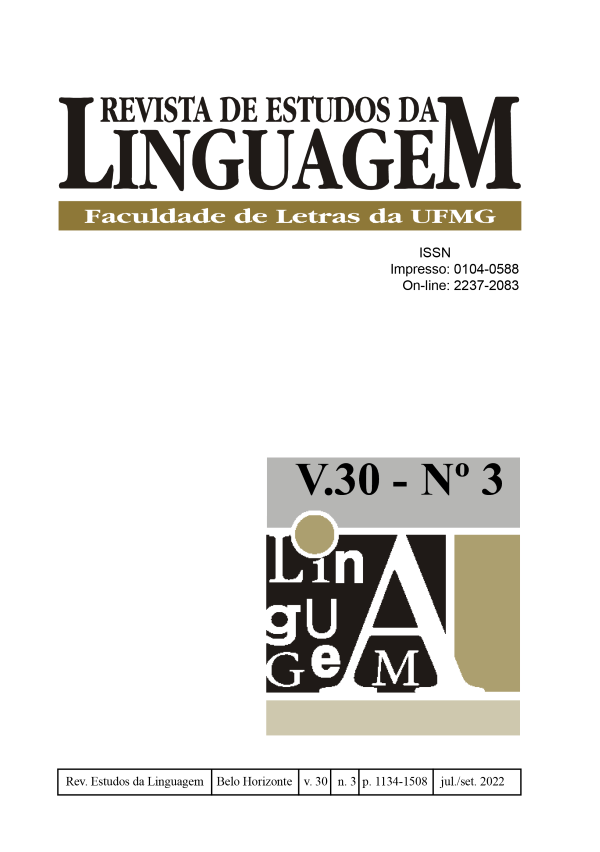Da afirmação enfática à concessividade
dois estudos de caso na história do português
DOI:
https://doi.org/10.17851/2237-2083.30.3.1397-1436Palavras-chave:
junção, concessividade, gramaticalização, diacroniaResumo
Este trabalho investiga os processos diacrônicos de constituição de duas perífrases conjuncionais concessivas do português, bem que e se bem que. Com respaldo teórico da Gramaticalização, sobretudo Traugott e Dasher (2002), Heine e Kuteva (2007), Bybee (2010), e de alguns pressupostos de teorias pragmáticas sobre concessividade, conforme Anscombre (1980), Ducrot (1984), Moeschler e Spengler (1982), Rossari (2014), a questão maior está na compreensão do elo entre a semântica da fonte adverbial, os processos inferenciais instigados contextualmente e o tipo de significado concessivo. As análises são baseadas em uma amostra diacrônica que reúne textos do português antigo ao moderno e em uma metodologia norteada pelos padrões polissêmicos das construções com suas respectivas propriedades distribucionais. Os resultados fornecem evidências de que, embora se trate de dois fenômenos de mudança que emergem em diferentes estados de língua e em contextos distintos, ambos têm na fonte o advérbio bem, na função de afirmação enfática, e ambos se especializam na expressão de relações concessivas restritivas. Os dados duplamente compatíveis com as interpretações fonte e alvo indiciam processos graduais da pragmática à semântica, nos quais as noções de polifonia e hierarquia argumentativa são importantes.





